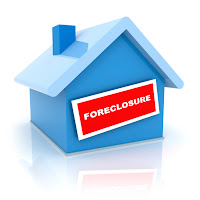First Time Home Buyer Tips
If you have been thinking of purchasing your first home, there
are some things that you should do before shopping around for your dream home
or attempting to get a mortgage loan. If you follow these tips, you will be the
ideal first time home buyer for any Realtor or mortgage company.
- Know your TRUE expenses. – More often than not, those looking to buy their first home don’t keep track of their true expenses. Without a realistic budget, you won’t know what you can actually afford for your mortgage payments. A great way to get an accurate budget is to use a free software to track your expenses. This includes everything you spend money on, cash, cards and checks. Keep your receipts for everything and track your spending habits. There is a lot more to a budget than just car payments, groceries, rent and utilities. You most likely spend money on entertainment, eating out, clothing and special occasions such as friend or family birthdays and holidays. Once you have tracked your expenses for several months, you will know what you can comfortably spend on a mortgage payment without diverting too far from your lifestyle. This is also a great tool to see where you can cut expenses and put more away for your down payment.
- Good Banking Habits – Many first time home buyers end up shocked to find out that the few thousand their parents gave them to help with the down payment on their first house may not be counted towards their actual account balances when going through the mortgage process. If at all possible, keep depositing your paychecks into a savings account and use any cash help you have received to purchase a home towards your monthly expenses, or even better – to remove any negatives off your credit or pay down credit card balances. Of course, there are a few mortgage programs that allow for gift help with down payments, but you may get a better deal all around if you show steady income through a paycheck, showing that your checking account balance didn’t just surge from $0 to $5,000 from a single deposit. If you hold gifted money in your account for a year, it’s more likely to be accepted. If you are self-employed there may be other specific requirements.
- Credit Rating – Knowing what’s on your credit report and keeping it as clean as possible is very important. Lenders will look at your credit rating, and also look at how many charge accounts, loans and inquiries you have on your credit reports. If you have any negative marks on your credit for un-paid or late-paid accounts, you will need to clean them up. Many collections agencies will agree to remove the account entirely off your report if you reach a settlement or pay in full. If you can’t come to an agreement with a creditor to remove negatives off your account, try to pay it off as soon as possible anyway. You will also want to check for mistakes. It’s not uncommon for people to have mistakes on their credit reports. If you find mistakes, make sure that you contact all 3 major credit bureaus to dispute the false information and give at least 3 months’ time to allow for removal of any false information.
- Save for Closing Costs and Fees – Many first time home buyers don’t realize that there are fees outside of a mortgage loan itself involved in the process. Make sure before you decide to go with any lender that you get all fees and closing costs in writing before you decide they are the right lender for you.
- Watch the Market – Knowing what’s going on with mortgage rates and government loan programs is a good idea. It’s also good to know the housing market where you want to purchase your home. Research is invaluable. If you don’t know that mortgage rates reached an all time low you could miss out on an opportunity to lock in a rate. If you don’t know that the neighborhood you wanted to move into has four homes in foreclosure and is moving the market value of homes down instead of up, you could end up owing more than your home is worth in a year. A simple search online will give you insight to what’s going on in your area.
- Get Pre-Approved, Not Just Pre-Qualified – If you are sure your finances and credit is in order, you have a decent nest egg and down payment ready, have watched the market and feel like you are ready to start looking for homes, make sure to get Pre-Approved for a certain amount before you approach a Realtor. Getting pre-qualified is just a preliminary process, and while it’s great to shop around a few lenders to see what rates they are offering and what the total cost of the loan could be, once you have found the best deal, get a Pre-Approval from them with everything in writing. You may need to do a rate lock as well, which will lock in your ideal interest rate for a certain period of time. This will make the whole shopping process so much easier, you will have a set budget to provide a Realtor and can focus on the fun part – Finding your first home!
- Don’t Skip the Home Inspection! – Once you have looked at homes and feel you have found the ONE, make sure to get a full home inspection. This includes a termite inspection. You will want to know any potential repairs before hand, and if they are extensive, you may be able to negotiate price, or get into a home loan that allows for repair expenses to be included in the loan.
- Get Everything In Writing From Start To Finish – From the closing costs to the offer on the home, make sure that everything is in good order and that all expenses and contingencies are in writing. If you make an offer, make sure that it’s in writing that the offer is only good if inspection is passed.
These are just a few tips for First Time Home Buyers to make the process go so much easier and skip some potential snags along the way.
Brian Kordell with Advisors
Mortgage Group, LLC is a dedicated New Jersey lender.




